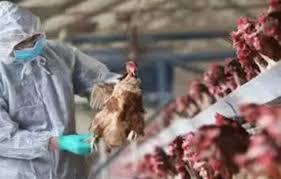Australia has reported its first-ever case of avian influenza (H5N1) in a human, marking a significant development in the country’s battle against the virus that has caused widespread deaths among birds and mammals in recent years. The news comes amid another strain of highly transmissible avian flu being detected on an egg farm in the country.
According to state health authorities in southeastern Australia, where the case was reported, the risk of human-to-human transmission remains low, as the virus does not typically spread to humans. However, the confirmation of a human case highlights the potential risks posed by the virus.
In a statement on Wednesday, State Chief Health Officer, Dr. Looker, acknowledged the gravity of the situation, saying, “This is the first confirmed human case of highly pathogenic avian influenza in Australia.”
He added, “This is the first time the virus has been found in a person or animal in Australia.”
Providing details on the case, Looker said, “The child experienced a severe infection but is no longer unwell and has made a full recovery.” The child had previously contracted the disease in India before traveling to Australia.
The impact of the avian flu outbreak has been felt across the poultry industry, with Chief Executive of Australia Eggs, Rowan McMonnies, revealing that farmers are “working hard to ensure there are eggs on shelves.”
The Australian Chicken Meat Federation (ACMF) has also taken precautionary measures, intensifying its biosecurity protocols to mitigate the risk of further spread. In a statement, the organization said, “No discernible impact is expected on chicken meat supplies.”
Avian influenza, commonly known as bird flu, is a highly contagious viral disease that primarily affects birds but can also infect other animals and, in rare cases, humans. The H5N1 strain, in particular, has been a cause for concern due to its high mortality rate among poultry and its ability to cross the species barrier.
While human cases of avian influenza are rare, they can occur through close contact with infected birds or their droppings. Symptoms in humans can range from mild flu-like illness to severe respiratory distress and, in some cases, can be fatal.
Health authorities in Australia are closely monitoring the situation and have urged the public to remain vigilant, follow proper hygiene practices, and report any unusual illness in birds or other animals. Preventive measures, such as strict biosecurity protocols and surveillance, are crucial in containing the spread of the virus and minimizing the risk to human health


























